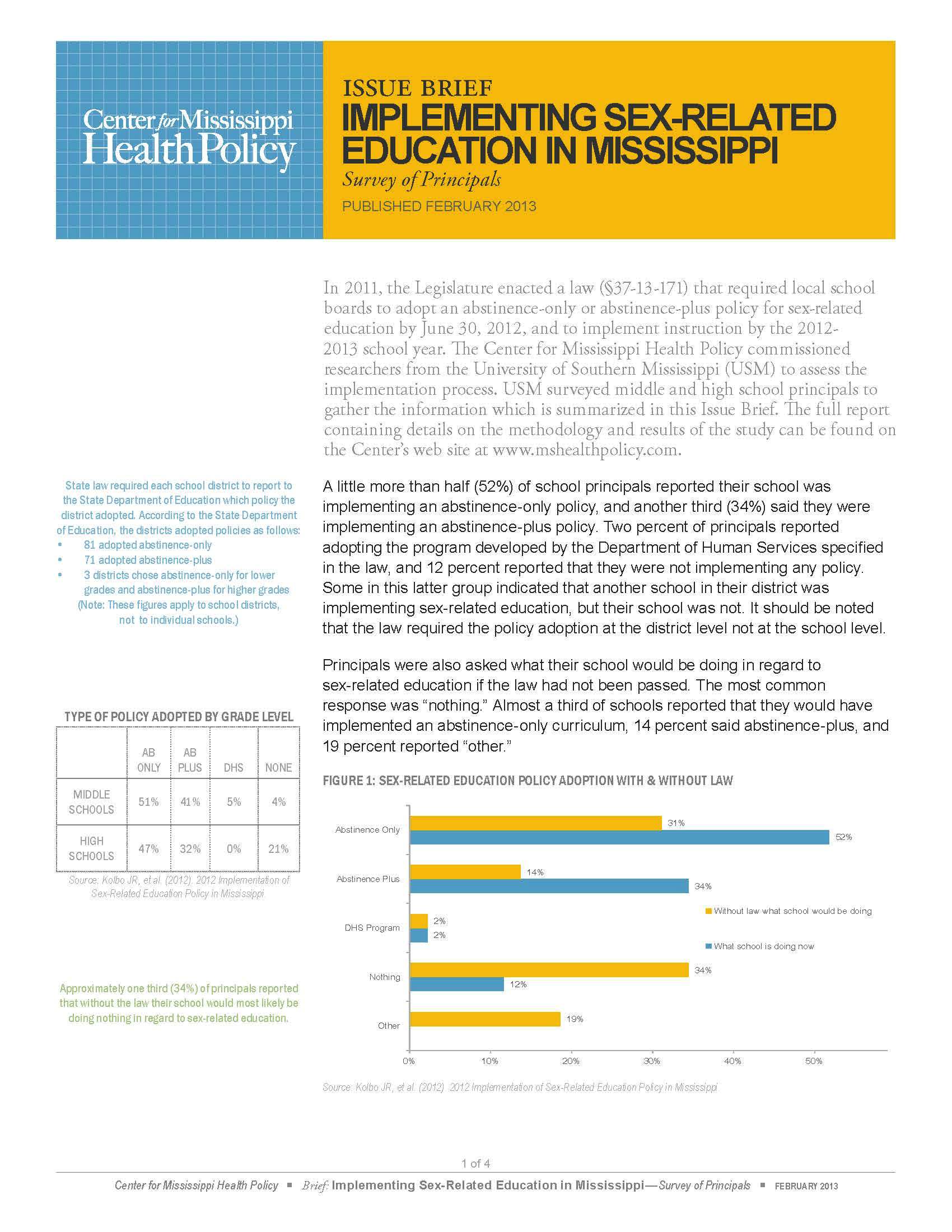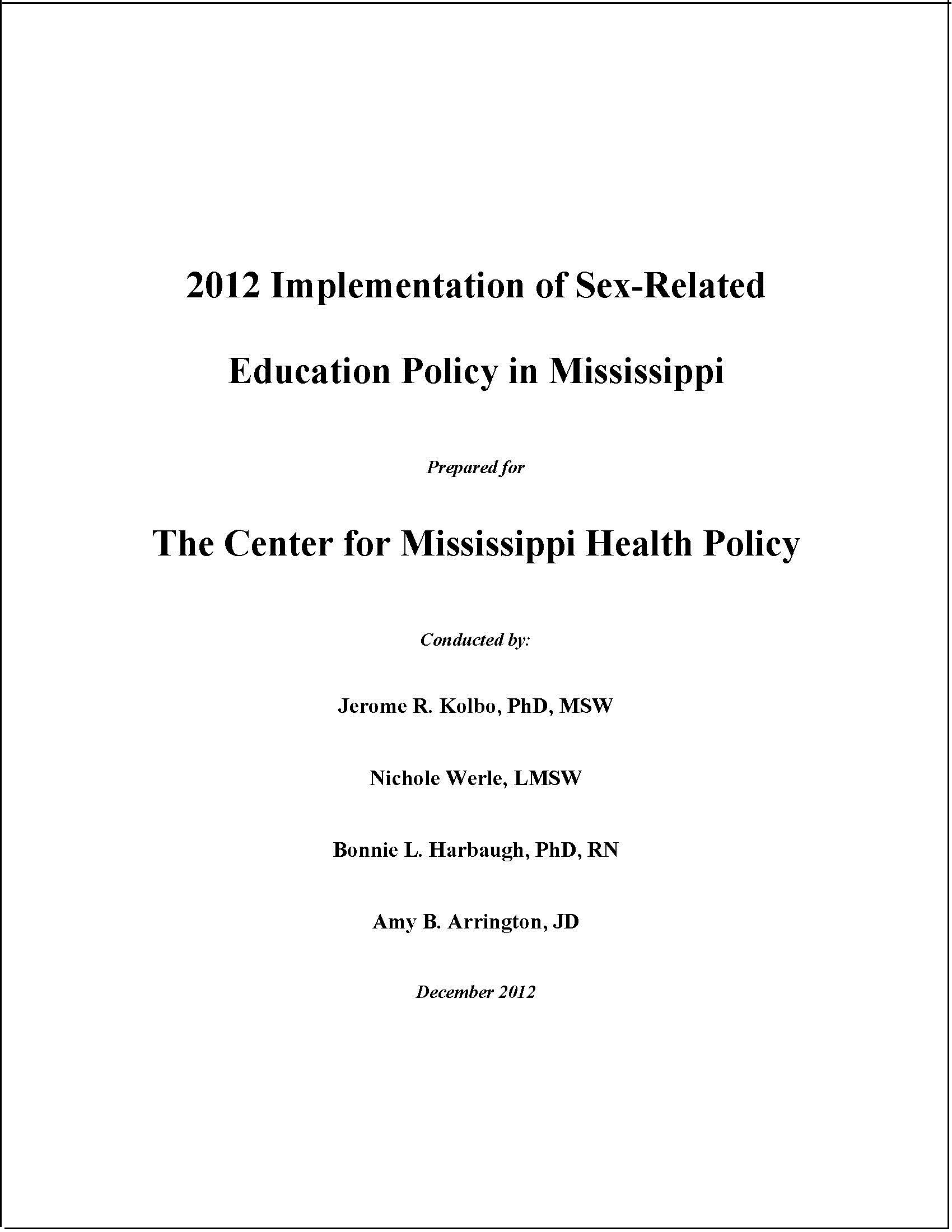Implementing Sex-Related Education in Mississippi Public Schools – 2012
Tuesday, February 26th, 2013

During its 2011 Regular Session, the Mississippi Legislature enacted a law (§37-13-171) that required each local school board to adopt an abstinence-only or abstinence-plus policy on sex-related education by June 30, 2012, and to implement instruction by the 2012-2013 school year. The Center for Mississippi Health Policy commissioned researchers from the University of Southern Mississippi (USM) to assess the implementation process. The researchers surveyed middle and high school principals to gather information related to the policy adoption process, the curriculum that was selected, teachers of the curriculum, the grades in which instruction was provided, barriers and challenges to implementing the policy, and related matters.
Key Findings
This survey of middle and high school principals provides insight into the implementation of mandated sex-related education in Mississippi schools. Most principals (52%) reported implementing an abstinence-only policy in their schools, with another third reporting adopting an abstinence-plus policy. The fact that 12 percent of principals, primarily from high schools, stated that their schools were not implementing any form of sex-related education points to the manner in which the law is constructed in that the school boards were required to adopt a policy for the district, but not all schools must teach the curriculum. If the law had not been enacted, at least a third of schools would not be implementing any sex-related education program.
Other key findings:
- The most common curriculum used by both abstinence-only and abstinence-plus schools was the same: “Choosing the Best.”
- School administrators have the primary responsibility for overseeing implementation of the policy.
- Health education teachers have the primary responsibility for teaching the curriculum, followed by school nurses and PE teachers.
- Most middle schools are teaching the curriculum in the seventh and eighth grades, and most high schools are teaching the curriculum in the ninth and tenth grades.
- Politicians had slightly more influence in the policy adoption process in the policy adoption process and in selecting the material to be taught in abstinence-only schools than in abstinence-plus schools.
- Most principals did not report any major barriers or challenges to implementing the new law, and of those that did, the most frequent challenges mentioned were time/scheduling and separating classes by gender.
Copies of the issue brief can be downloaded HERE, and copies of the detailed report can be downloaded HERE. Printed copies of the issue brief or full report are available by contacting the Center for Mississippi Health Policy at 601-709-2133 or by e-mail at info@mshealthpolicy.com.


